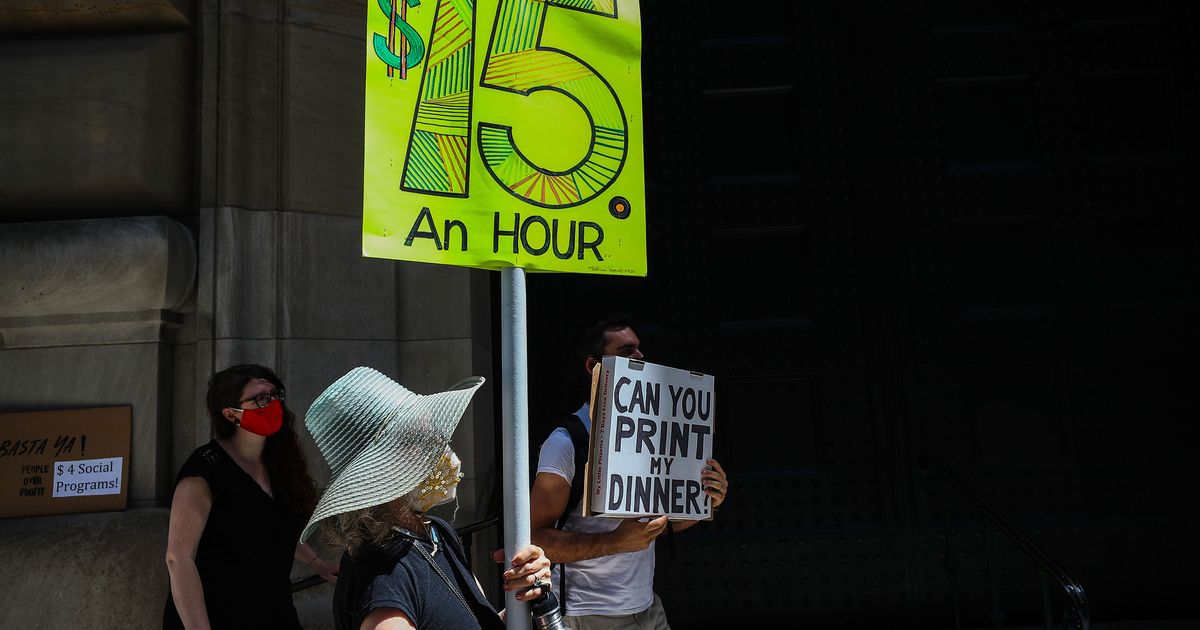Lumpenproletariat
Veteran Member
- Joined
- May 9, 2014
- Messages
- 2,714
- Basic Beliefs
- ---- "Just the facts, ma'am, just the facts."
"permanent double-digit unemployment"? There's no way to measure the exact number of jobs eliminated, or the total production disrupted and consumers screwed. Just as the total damage from slavery or from crime or from WW2 cannot be precisely measured (or from one accident on a slippery road).. . . a long list of cities and states enacted minimum wage increases of unprecedented size. Between 2014 and 2022, California increased its minimum wage by 56 percent in inflation-adjusted terms. Over a similar time period, New York raised its wage floor by 72 percent.
Permanent double digit unemployment did not ensue.
What did ensue was worse than if instead the workers and employers had been left free to set their own terms rather than have to submit to this outside interference in their choices. There's no evidence that this outside interference into private decision-making creates a net social benefit. The interference necessarily increases the cost of production, thus reducing the production and the overall living standard which depends on maximum efficient performance by producers.
That some of those adversely affected make exaggerated predictions about the inevitable damage resulting from it does not prove that there is no net damage inflicted. If the interference is major, then possibly major damage is inflicted onto the production. But even if the interference is phased in slowly, or in small doses, each infliction of interference into the private choices of the producers/sellers/buyers inflicts a little more damage each time.
Crybaby wage-earners need government babysitting service
(like MW law etc.).
No one has ever made a case for singling out labor cost for special treatment as the only cost of business which must be set by government, as having some special status different than all the other costs of business. All such outside interference, disrupting the decision-making and performance by producers can only reduce the total production getting done = lower output and supply = higher prices to all consumers. The point of the production is to serve the consumers, not provide incomes to someone put into job slots to keep them out of mischief. The purpose of them being there is to get the maximum production/output value from them, for society, not as a place to care for them and babysit them, which is the premise of MW law.
Businesses are also served by independent contractors and other companies offering services, meaning much hard work by others not covered by the babysitting labor laws for wage-earners only. No one has shown what extra social need is served by singling out the wage-earners for this special treatment and status, separate from all other producers, such that they alone must have government interfere to lead them by the hand and make the choices for them which all other producers are grown up enough to make for themselves.
If you could show how this babysitting service does provide a net social benefit, then maybe it's legitimate. But the overall effect is to reduce the total production, which means net damage to all society = all consumers, while the only ones benefiting are the select wage-earners whose wage income increase is higher than the higher cost they must pay as consumers. To everyone else it is a net loss, including to many/most wage-earners who don't get a net higher wage income as a result.
In fact, not only did these historically large minimum wage hikes fail to put all fast food workers out of job, but a new study indicates that they actually induced job growth.
The "new study" is just further Left-wing ideology-based propaganda rather than any objective facts. But it does reflect the worship of "jobs! jobs! jobs!" as needed babysitting slots for excess job-seekers rather than as something needed in the production process to benefit consumers.
New Study Finds a High Minimum Wages Creates Jobs
Conventional wisdom had long suggested the opposite.nymag.com
